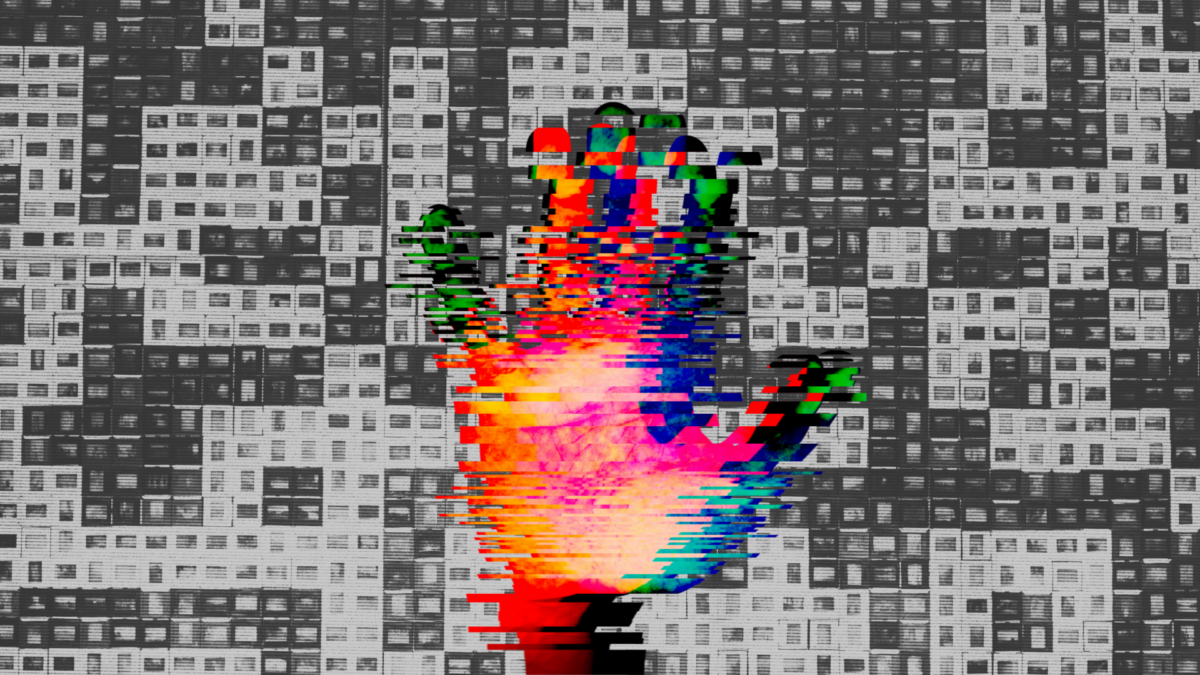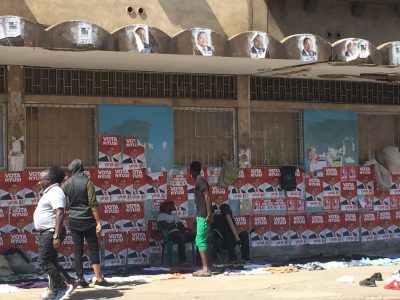
Image by Global Voices
Authoritarian regimes have long had a complicated relationship with media and communications technologies, using them to advance their messaging and propaganda goals while restricting access for others in order to shape and warp reality, conceal abuses, and maintain power. The Unfreedom Monitor is a Global Voices Advox research initiative examining the growing phenomenon of networked or digital authoritarianism. This extract is the executive summary of the final report on our findings over 18 months and 20 countries. You can read the full report here, and you can read other reports and stories from the project here.
The Unfreedom Monitor is a project to analyse, document, and report on the growing phenomenon of the use of digital communications technology to advance authoritarian practices. The initial phase of the project tracks and documents key developments in digital authoritarianism in select countries. The project also articulates the technological and regulatory scaffolding that underpins authoritarianism, which restricts access to rights and narrows space for freedoms.
The Unfreedom Monitor aims to provide a foundation for understanding how authoritarian entities employ information technologies in real life. The research focuses on four main themes — data governance, speech, access, and information — all of which involve the shaping and control of information ecosystems to restrict freedoms and rights, limit privacy, and erode people’s ability to participate meaningfully in civic life. We look at countries in context, and also examine how they are related to similar practices in other countries. Notably, we explore the reliance of many countries on transnational access to technologies, observing similar approaches and justifications in different contexts.
We examine the tools and methods used to restrict freedoms, target opposition movements, activists, journalists, and artists, and repress the universal rights of citizens at a mass scale, and the claims states make to persuade people to accept those restrictions. We explore, in depth, the narratives that authoritarian powers promote to justify their actions in the restricted information spaces these actions create, as well as narratives of resistance that opponents use to counter authoritarian claims.
The logic of the Unfreedom Monitor’s approach is based on the insight that understanding narratives and illuminating the cognitive frames states use to justify restricting freedoms allows us to move beyond a piecemeal and atomised analysis of disinformation and misinformation. We use a method of analysis rooted in a taxonomy that helps researchers generate detailed descriptions and explanations of authoritarian incidents. This ensures a standardised approach to all incidents, facilitating impartial analysis and providing a basis for comparison.
Our research shows that technological approaches to the shaping of information ecosystems are not limited to censorship or regulatory restrictions. Authoritarians are investing in technologies of control and surveillance, from spyware that tracks the online behaviour of individuals, to mass online surveillance through deep packet inspection and similar technologies, to AI-based technologies such as facial recognition that allow states to engage in comprehensive surveillance of public spaces. Such technologies allow states to identify and follow individuals across both real-world and digital spaces, buttressing those technological choices with regulatory approaches that make resistance difficult.
Many states are also pursuing a range of information operations and campaigns, flooding information ecosystems with misinformation and disinformation and propaganda at scale to push narratives designed to persuade people that authoritarian practices serve their interests. A comparative examination of these narratives demonstrates a persistent effort to justify authoritarian acts in terms of public safety, national security, public health, and other claimed benefits, as well as mobilising populist narratives that define in-groups and demonise enemies. Furthermore, information operations are themselves often defended by states with the deceptive argument that they should be protected as free expression.
Due to the complex, multisectoral nature of state use of technology, strategies for countering digital authoritarianism are not simple. They require expertise in multiple domains of knowledge, from international trade regulations to corporate governance of social media platforms, from international freedom of expression mechanisms to national-level implementation of media regulations, from an understanding of telecommunications infrastructure to user behaviour of mobile internet at national and local levels, as well as an understanding of national politics and how they intersect with international communications networks.
The Unfreedom Monitor foregrounds the study of narratives that underpin authoritarian practices. This emphasis helps communities at local, regional and global levels to identify when authoritarian practices are on the rise, and could inform strategies of resistance, as well as advocacy and policy responses. This publicly available research may also be used by various civil society actors such as journalists and academics to bolster their work. The study:
- Offers a language and taxonomy that facilitates analysis as a precursor to policy responses
- Identifies common approaches many states have taken to restrict freedoms
- Recognises that policy responses are often siloed by subject, initiative, technology, and legal jurisdiction
- Underscores the need to develop comprehensive policy responses that can address all vectors of repression
- Suggests that advocacy to restrain digital authoritarianism needs to include local, regional and international stakeholders
This report summarises the findings of the project after 18 months of research, and provides a roadmap for using the project’s dataset. It should be read alongside the project’s other key outputs, including a briefing note, country and topic studies, published stories, and a comprehensive dataset of incidents, media items, themes and narrative frames.
You can read the full report here.




